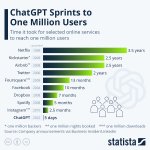uiux
Regular
Pretty interesting reading about Bilderberg in Washington DC this year.
The key topics for discussion this year are:
1. Geopolitical Realignments
2. NATO Challenges
3. China
4. Indo-Pacific Realignment
5. Sino-US Tech Competition
6. Russia
7. Continuity of Government and the Economy
8. Disruption of the Global Financial System
9. Disinformation
10. Energy Security and Sustainability
11. Post Pandemic Health
12. Fragmentation of Democratic Societies
13. Trade and Deglobalisation
14. Ukraine
Full list of participants here:
Notables:
---

 amp.theaustralian.com.au
amp.theaustralian.com.au
---

 amp.theguardian.com
amp.theguardian.com
And of course, holding court at the hotel bar will be Klaus Schwab’s mentor, Henry Kissinger.
Incredibly, Kissinger, 99, has been attending Bilderbergs since 1957.
The prince of realpolitik has been the ideological godfather of Bilderberg for as long as anyone can remember. And he’s recently co-authored a book, The Age of AI, with Bilderberg steering committee member Eric Schmidt, the former head of Google, and this year’s Washington conference is noticeably rammed with AI luminaries, from Facebook’s Yann LeCun to DeepMind’s Demis Hassabis.
Bilderberg knows that however the global realignments play out, and whatever a reset global financial system looks like, the shape of the world will be determined by big tech. And if the endgame is “Continuity of Government”, as the agenda suggests, that continuity will be powered by AI.
Whatever billionaire ends up making the software that runs the world, Bilderberg aims to make damned sure that it has its hand on the mouse.
---

 time.com
time.com
Kissinger: When I was an undergraduate, I wrote my undergraduate thesis of 300 pages—which was banned after that ever to be permitted—called “The Meaning of History.” The subject of the meaning of history and where we go has occupied my life. The technological miracle doesn’t fascinate me so much; what fascinates me is that we are moving into a new period of human consciousness which we don’t yet fully understand. When we say a new period of human consciousness, we mean that the perception of the world will be different, at least as different as between the age of enlightenment and the medieval period, when the Western world moved from a religious perception of the world to a perception of the world on the basis of reason, slowly. This will be faster.
The key topics for discussion this year are:
1. Geopolitical Realignments
2. NATO Challenges
3. China
4. Indo-Pacific Realignment
5. Sino-US Tech Competition
6. Russia
7. Continuity of Government and the Economy
8. Disruption of the Global Financial System
9. Disinformation
10. Energy Security and Sustainability
11. Post Pandemic Health
12. Fragmentation of Democratic Societies
13. Trade and Deglobalisation
14. Ukraine
Full list of participants here:
Notables:
- Altman, Sam (USA), CEO, OpenAI
- Hassabis, Demis (GBR), CEO and Founder, DeepMind
- Hoffman, Reid (USA), Co-Founder, Inflection AI; Partner, Greylock
- LeCun, Yann (USA), Vice-President and Chief AI Scientist, Facebook, Inc.
- Scott, Kevin (USA), CTO, Microsoft Corporation
- Suleyman, Mustafa (GBR), CEO, Inflection AI
- Wennink, Peter (NLD), President and CEO, ASML Holding NV
---
World’s most secretive group meets in Washington
One of the worlds highest-powered, yet least known, conferences on international affairs wrapped up in Washington DC on Sunday Monday AEST, without a single Australian among the attendees.
---

Bilderberg reconvenes in person after two-year pandemic gap
The Washington conference, a high-level council of war, will be headlined by Jens Stoltenberg, Nato’s secretary general
And of course, holding court at the hotel bar will be Klaus Schwab’s mentor, Henry Kissinger.
Incredibly, Kissinger, 99, has been attending Bilderbergs since 1957.
The prince of realpolitik has been the ideological godfather of Bilderberg for as long as anyone can remember. And he’s recently co-authored a book, The Age of AI, with Bilderberg steering committee member Eric Schmidt, the former head of Google, and this year’s Washington conference is noticeably rammed with AI luminaries, from Facebook’s Yann LeCun to DeepMind’s Demis Hassabis.
Bilderberg knows that however the global realignments play out, and whatever a reset global financial system looks like, the shape of the world will be determined by big tech. And if the endgame is “Continuity of Government”, as the agenda suggests, that continuity will be powered by AI.
Whatever billionaire ends up making the software that runs the world, Bilderberg aims to make damned sure that it has its hand on the mouse.
---

Henry Kissinger’s Last Crusade: Stopping Dangerous AI
The former Secretary of State and the former CEO of Google call for leadership and guidelines around how we use artificial intelligence.
Dr. Kissinger, you’re an elder statesman. Why did you think AI was an important enough subject for you?
Kissinger: When I was an undergraduate, I wrote my undergraduate thesis of 300 pages—which was banned after that ever to be permitted—called “The Meaning of History.” The subject of the meaning of history and where we go has occupied my life. The technological miracle doesn’t fascinate me so much; what fascinates me is that we are moving into a new period of human consciousness which we don’t yet fully understand. When we say a new period of human consciousness, we mean that the perception of the world will be different, at least as different as between the age of enlightenment and the medieval period, when the Western world moved from a religious perception of the world to a perception of the world on the basis of reason, slowly. This will be faster.

